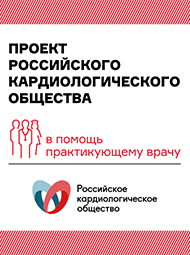Obstructive sleep apnea may cause sudden cardiac death
NEW YORK (Reuters Health) - Obstructive sleep apnea (OSA) may contribute to overall cardiometabolic risk and even cause sudden cardiac death (SCD), according to two recent studies.
"Increasing evidence suggests a potential role of OSA for causing or worsening a broad range of cardiovascular conditions," Dr. Virend K. Somers from the Mayo Clinic in Rochester, Minnesota told Reuters Health. "While awaiting randomized, controlled trials, it would certainly be prudent to treat OSA as part of a strategy to reduce these risks."
Dr. Somers and colleagues evaluated the association between OSA and the risk of SCD in a longitudinal study of 10,701 adults referred for sleep studies between 1987 and 2003.
Over an average follow up of five years, 142 patients had fatal or resuscitated SCD, which translated into an average annual risk of 0.27% for this population.
In univariate analysis, SCD was best predicted by age at least 60 (5.53-fold increased risk), apnea-hypopnea index of 20 or higher (60% increased risk), mean nocturnal oxygen saturation of 93% or lower (2.93-fold increased risk), and lowest oxygen saturation of 78% or lower (2.60-fold increased risk; all p<0.0001).
In the multivariate analysis, each 10% decrease in lowest nocturnal oxygen saturation was associated with a 14% increased risk of SCD (p=0.029), and each 10% decrease in mean nocturnal oxygen saturation was associated with a 49% increased risk of SCD (p=0.073). The apnea-hypopnea index was not associated with SCD in the multivariate analysis.
Dr. Somers said his group had previously shown that OSA patients had a higher risk of SCD at night, whereas individuals without OSA were more likely to have SCD between six am and noon, further evidence of a causal role of OSA in some patients.
"It would, therefore, be prudent to evaluate patients resuscitated from SCD, as well as patients whose implanted cardioverter-defibrillators fire appropriately at night, for OSA," Dr. Somers said. "Therapy in patients found to have OSA should be individualized; some may need continuous positive airway pressure (CPAP) therapy, whereas others may respond favorably to a weight loss program."
Dr. Somers added that several intervention trials are underway which should, within the next four years or so, clarify not only the role of OSA in cardiovascular conditions, but also how best to prevent SCD and other outcomes in these patients.
Dr. Fernando De-Torres Alba from La Paz University Hospital, Madrid, Spain, who has also explored the association between OSA and cardiovascular disease, told Reuters Health, "As this is a retrospective study, no clinical recommendations for the management of patients with OSA should be made upon its results, but it raises the issue that these patients may have a higher risk of SCD, and thus, a thorough evaluation and proper management of well known cardiovascular risk factors associated with SCD should be made. However, prospective randomized studies are needed to assess whether OSA treatment influences outcomes in this population."
In a second study, Dr. Luciano F. Drager from University of Sao Paulo Medical School, Sao Paulo, Brazil and colleagues reviewed recent evidence supporting an independent role for OSA in obesity and metabolic syndrome.
They say numerous studies have demonstrated an independent association between OSA, insulin resistance, and type 2 diabetes, and even mild recurrent hypoxemia has been independently associated with metabolic dysfunction.
OSA also contributes to exacerbations of nonalcoholic fatty liver disease (NAFLD) and potentiation of sympathetic activity in obese patients. Several reports demonstrated that OSA impairs endothelial dysfunction and that treatment with CPAP improves it.
"Beyond the improvements on sleep quality and quality of life, it is possible that OSA treatment may decrease the cardiovascular risk that is traditionally attributed only to obesity," Dr. Drager concluded. "In other words, OSA is a potential residual factor that may partially explain the cardiovascular burden of excessive body weight."
But, Dr. Drager added, "Growing evidence has been shown that OSA is not simply an epiphenomenon of obesity and/or the metabolic syndrome. Therefore, we need to call the attention for more OSA screening in patients with obesity and metabolic syndrome."
Both studies will appear in the Journal of the American College of Cardiology, which doesn't announce its publication dates in advance.
Source: bit.ly/ZxVjdn






